KCU students are increasing trust, healing and hope by bringing essential health care services to our communities – proving that empathy, advocacy and outreach can make all the difference.
KCU isn’t just committed to shaping future health care professionals for tomorrow, we're dedicated to making a real, lasting difference for our communities today.
Through innovative outreach initiatives, KCU is transforming student education while addressing critical health care needs in both Kansas City and Joplin, Missouri. These efforts not only provide essential services to patients in under-represented communities but also immerse students in hands-on clinical experiences that build empathy, cultural competency and practical skills.
Action from advocacy
It all started with a student concern. When the growing homelessness crisis in the Kansas City area started to hit home, students at KCU felt compelled to act. Benjamin Grin, MD, MPH, assistant professor of Primary Care at KCU and a key figure in the University’s outreach efforts, recalls how the advocacy of these students led to the formation of the Community Outreach Task Force.
“Students wanted to address homelessness in a meaningful way,” Grin explains. “The administration responded by forming the task force to explore safe, structured ways for students to engage with the community.”
The task force quickly formed a partnership with Care Beyond the Boulevard, a local nonprofit serving the homeless. Through this collaboration, KCU students provide medical care through clinics and mobile units to address immediate health care needs while gaining firsthand exposure to the systemic challenges faced by marginalized populations.
Another cornerstone of KCU’s community outreach is the Student-Run Clinic, a free clinic operated by second-year medical students. Serving medically underserved individuals across the Kansas City metro, the clinic partners with organizations such as KC CARE Health Center, Micah Ministries and Care Beyond the Boulevard, allowing students to gain hands-on clinical experience while addressing the community’s needs.
In addition to weekly clinics, special events like FreshStep, which offers foot care to people experiencing homelessness, help students refine their clinical skills while deepening their connection to the community. “These experiences help students develop cultural competency and build trust with vulnerable populations — trust that isn’t given but earned through engagement,” Grin said.
KCU’s outreach not only addresses immediate needs but also fosters long-term relationships. The Refugee Health Navigator Program helps refugee families navigate the health care system. Families are paired with one male and one female medical student to ensure a comfortable and supportive experience as they assist with scheduling appointments, understanding health care processes and fostering communications with providers. This includes coaching refuges on how to ask questions during doctor visits — something often culturally unfamiliar. Medical students also guide families in understanding privacy rights, like HIPAA and reviewing medical records. The goal is to create independence, empowering refugees to manage their health and navigate the system on their own.
Expanding opportunities
While KCU’s Kansas City campus focuses on urban outreach, its Joplin campus provides tailored solutions to a smaller, tight-knit community. Here, students partner with the Community Clinic of Southwest Missouri, gaining clinical experience in specialties such as cardiology, pulmonology and orthopedics.
This collaboration not only enriches student education but also enhances care for residents who may have limited access to health care services. “Second-year students are required to participate, gaining practical experience while working alongside clinic staff,” said Curtis King, MD, assistant professor of Primary Care.
KCU’s presence in Joplin extends beyond the clinic. Mobile care units visit local homeless shelters and other community sites, making health care more accessible to those who might hesitate to seek care in a traditional clinic setting.
“Mobile outreach breaks down barriers,” said Stephanie Brady, executive director at Community Clinic of Southwest Missouri. “Patients who might hesitate to visit a clinic are more comfortable receiving care where they feel safe. Our patients love interacting with the students. Many see it as their way of giving back, knowing they’re helping future doctors.”
Since the start of KCU’s involvement, the Joplin community has seen significant improvements in health care access. Brady points out that more primary care options are now available, and the clinic’s dental waitlist has dropped dramatically thanks to the opening of the KCU Oral Health Center.
A Legacy of service, compassion and learning
KCU’s outreach programs embody the University’s commitment to preparing health care professionals who serve all communities with empathy and compassion. “These experiences teach our students not only technical skills, but how to listen, build trust and show compassion,” says Grin.
By engaging directly with communities in Kansas City and Joplin, KCU is leaving a lasting mark. Through partnerships with organizations like Care Beyond the Boulevard and the Community Clinic of Southwest Missouri, KCU students are helping to shape healthier, more connected communities while developing as socially conscious leaders.
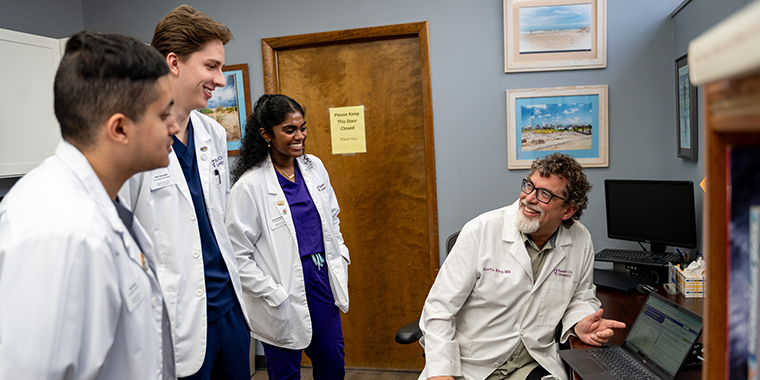
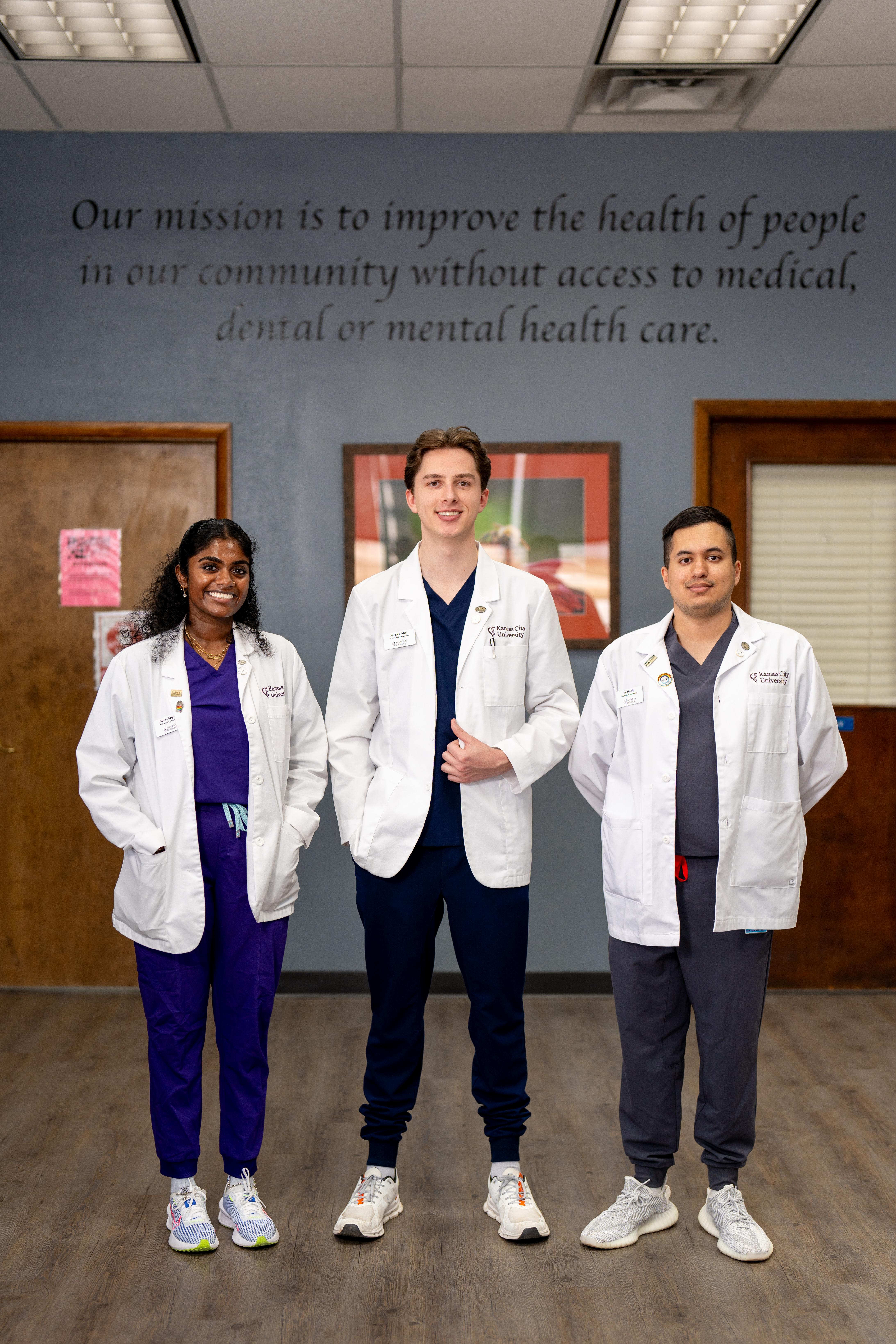
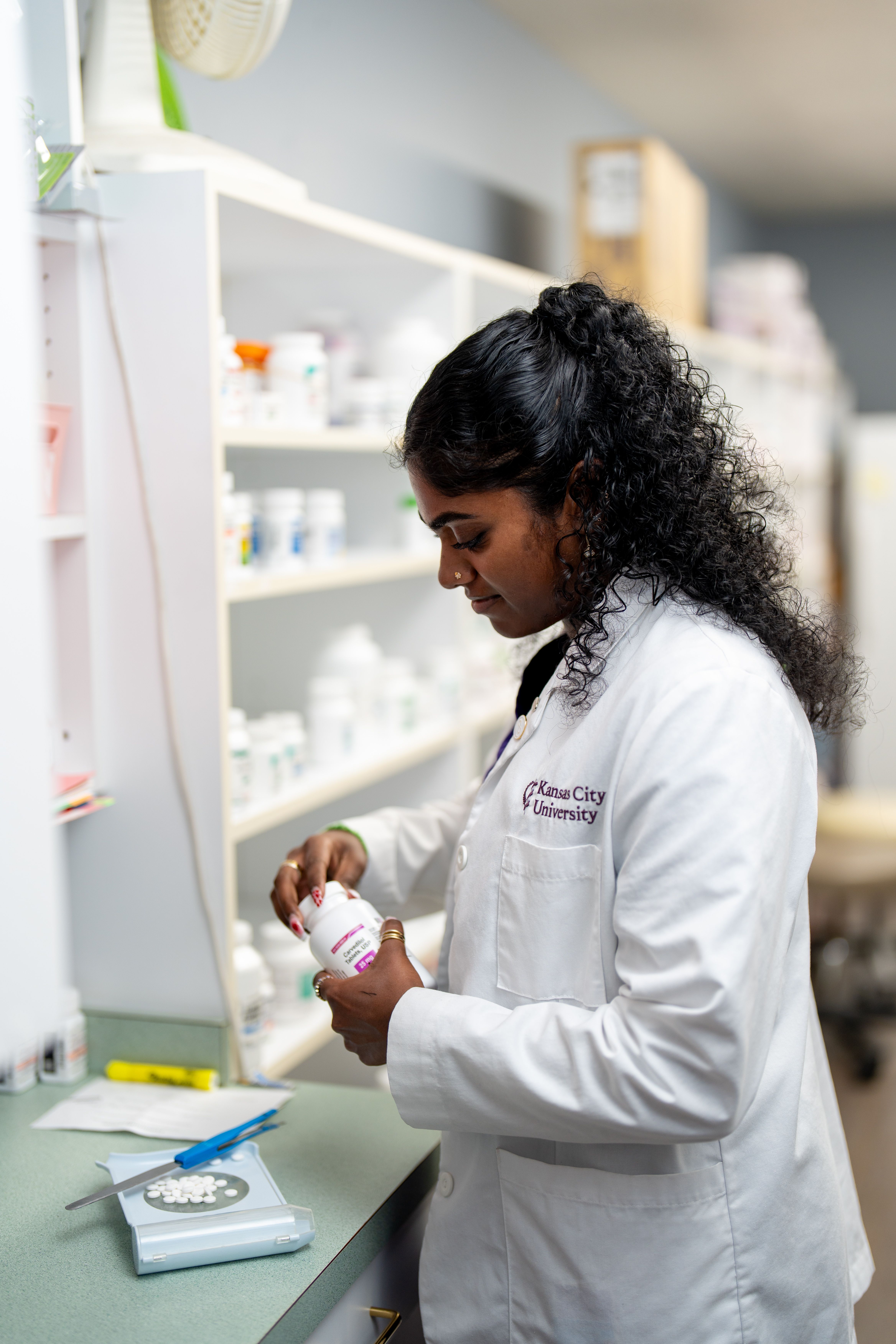
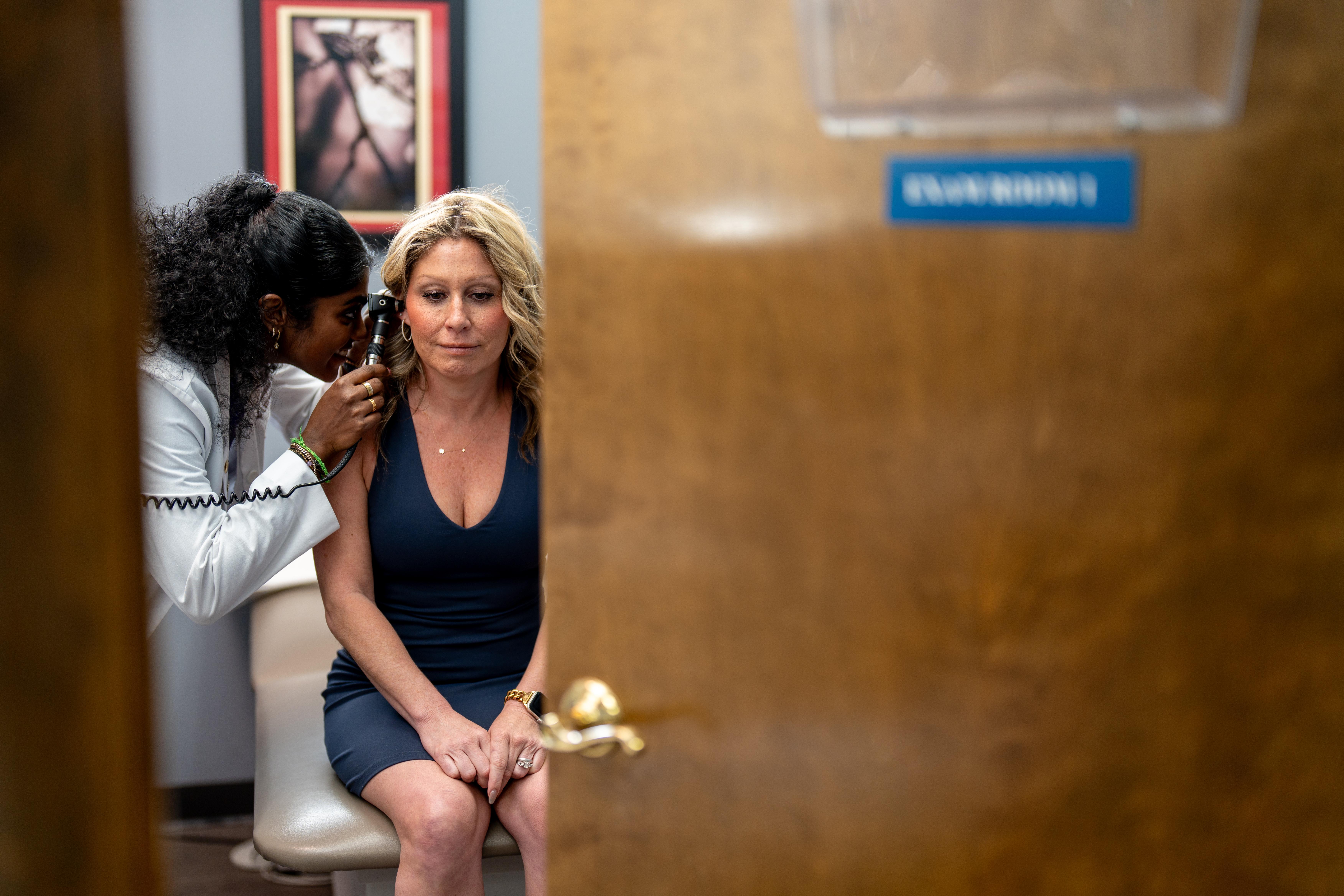
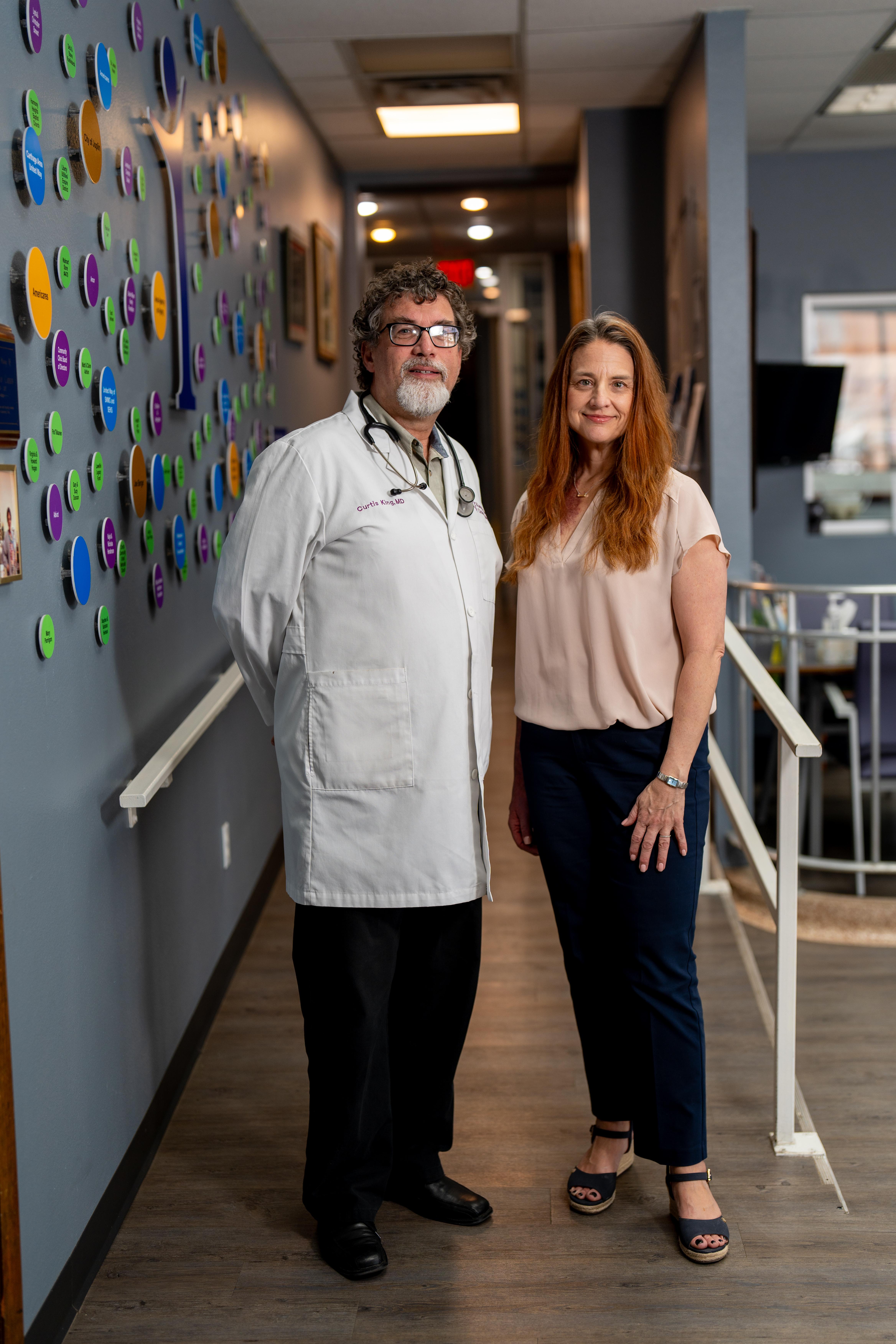


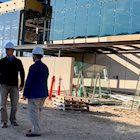
(0) Comments